Marketing Vs Promotion: Definitions, Key Differences, Types & Benefits
Marketing and promotion are two vital ideas that play different roles in propelling success and progress in today’s fast-paced corporate world. Yet, their differences and interdependence are often misunderstood. So, Marketing vs Promotion, how do they differ exactly?
Marketing is a comprehensive approach that includes various strategies to meet customer needs, while promotion focuses explicitly on communication strategies to generate interest in a product or service.
In this blog post, we will discuss the definitions of marketing and promotion, highlighting their key disparities, exploring the various types of promotional strategies, and how you can succeed by using both.
Main Difference Between Marketing Vs Promotion
Marketing and promotion are closely related but distinct concepts in the business world. Marketing encompasses the broader strategies and activities that aim to identify, anticipate, and satisfy customer needs effectively. It involves market research, product development, pricing, distribution, and branding.

On the other hand, promotion refers explicitly to the communication strategies used to create awareness and interest in a product or service. This includes advertising, sales promotions, public relations, and other promotional activities to attract potential customers and increase sales.
Overall, marketing is the comprehensive approach to meeting customer demands, while promotion focuses on the tactics employed to communicate and persuade customers to engage with a particular offering.
| Marketing | Promotion | |
| Scope and Objectives | Comprehensive approach to meet customer needs and goals. | Subset of marketing, focuses on communication strategies. |
| Activities | Market research, product development, pricing, branding. | Advertising, sales promotions, direct marketing, etc. |
| Timeframe | Ongoing and long-term strategy. | Short-term tactics to achieve immediate results. |
| Audience Reach | Entire target market or specific segments. | Targeted communication to reach specific audience. |
| Integration with other Marketing Elements | Integral part of overall marketing strategy. | Works alongside other marketing elements. |
| Impact on Customer Relationships | Builds long-term customer relationships. | May impact short-term customer actions. |
What Is Marketing?
Marketing is a multifaceted business discipline that identifies, understands, and satisfies customer needs and wants. It encompasses a wide range of activities and strategies aimed at promoting products, services, or ideas to target audiences. The primary goal of marketing is to create value for customers and build strong, long-term relationships with them.

Marketing involves conducting market research to gather insights about consumer preferences, behaviors, and trends. It also includes product development and positioning, pricing strategies, distribution channels, and branding efforts. Additionally, marketing encompasses advertising, sales promotions, public relations, content creation, digital marketing, and other communication tactics to reach and engage potential customers.
Benefits Of Marketing
Marketing plays a crucial role in the success and growth of businesses across various industries. Here are seven key benefits of marketing:
Increased Brand Awareness
Marketing activities such as advertising, content creation, social media presence, and public relations efforts help create and maintain brand visibility. Increased brand awareness means that more people recognize and remember your brand, which can lead to greater customer trust and loyalty.
Expanded Customer Base
Effective marketing campaigns can attract new customers to your business. By understanding customer needs and preferences, marketing helps you identify and target potential customers more likely to be interested in your products or services, expanding your customer base.
Boosted Sales and Revenue
Well-executed marketing campaigns can significantly impact sales and revenue. By promoting your offerings to the right audience at the right time, marketing can drive more sales and generate higher revenues for your business.
Competitive Advantage
In a competitive market, marketing can give your business a distinct edge. Effective marketing strategies highlight the unique selling propositions of your products or services, making them stand out from the competition and positioning your brand as the preferred choice.
Customer Loyalty and Retention
Marketing is about acquiring new customers but also helps build and retain existing ones. Engaging marketing campaigns, loyalty programs, and personalized communication can foster strong customer relationships, leading to repeat business and increased customer loyalty.
Market Insights
Marketing involves market research and analysis, which provides valuable insights into customer behavior, preferences, and industry trends. This information helps businesses make informed decisions, refine their offerings, and adapt to changing market conditions.
Long-term Growth and Success
Consistent and effective marketing efforts contribute to a business’s growth and success. By continually reaching out to potential customers, nurturing relationships, and adapting to market demands, marketing ensures a sustainable path to success.
Similar Post: 8 Key Differences: Digital Marketing Vs Social Media Marketing
Types Of Marketing
Marketing encompasses various strategies and tactics to reach and engage target audiences. Here are six major types of marketing:
Digital Marketing

Digital marketing leverages online channels and technologies to promote products or services. It includes various activities, such as website optimization, search engine marketing (SEM), search engine optimization (SEO), content marketing, social media marketing, email marketing, and online advertising. Digital marketing allows businesses to reach a global audience, track performance metrics, and precisely target specific demographics.
Content Marketing

Content marketing focuses on creating valuable and relevant content to attract and retain a target audience. The content includes blog posts, articles, videos, infographics, podcasts, and more. The goal is to provide helpful information that addresses the audience’s needs, builds trust, and positions the brand as an authority in the industry.
Social Media Marketing

Social media marketing involves using social platforms like Facebook, Instagram, Twitter, LinkedIn, and others to connect with potential customers. It includes posting engaging content, running paid advertising campaigns, and interacting with followers to build brand awareness, drive website traffic, and foster customer engagement.
Influencer Marketing

Influencer marketing is a collaboration between brands and influential individuals in a specific niche or industry. These influencers have a dedicated following; their recommendations and endorsements can significantly impact consumer buying decisions. Brands partner with influencers to promote their products or services to a larger audience and tap into their credibility and trust.
Email Marketing

Email marketing is direct email communication with potential and existing customers. It involves sending newsletters, promotions, product updates, and personalized content to nurture leads and encourage repeat business. Effective email marketing can increase sales, customer retention, and brand loyalty.
Traditional Marketing
Traditional marketing refers to conventional advertising methods used before the digital age. This includes television and radio commercials, print advertisements (newspapers, magazines), billboards, direct mail, and events. Though digital marketing has gained prominence, traditional marketing can still effectively reach specific target audiences and create brand recognition.
Marketing Examples
Social Media Campaigns
Companies use social media platforms like Facebook, Instagram, and Twitter to run engaging campaigns that promote their products, services, or brand message. These campaigns can include interactive content, user-generated contests, and influencer partnerships to reach a broader audience.
Email Newsletters
Email marketing campaigns involve sending newsletters and promotional emails to subscribers, updating them on new products, exclusive offers, and company news. Email marketing is an effective way to nurture leads and maintain customer relationships.
Search Engine Optimization (SEO)
Companies optimize their website content to rank higher in search engine results, increasing their online visibility and attracting organic traffic from potential customers actively searching for related products or services.
What Is Promotion?
Promotion refers to specific marketing activities to raise awareness, interest, and demand for a product, service, or brand. It involves communicating with the target audience through various channels to persuade them to engage with the offering. Promotional activities include advertising, sales promotions, public relations, direct marketing, and personal selling.

The ultimate goal of promotion is to influence consumer behavior positively and encourage them to act, such as making a purchase, signing up for a service, or attending an event. Effective promotion plays a vital role in driving sales and achieving marketing objectives.
Benefits Of Promotion
The promotion offers several significant benefits that contribute to the success of a business. Here are some significant advantages of promotion:
Increased Brand Awareness
Promotional efforts such as advertising, social media campaigns, and public relations activities help to increase brand visibility. When potential customers are exposed to a brand more frequently, they become more aware of its existence, leading to improved brand recall and recognition.
Expanded Customer Base
Promotion helps businesses attract new customers. By reaching out to a broader audience and effectively communicating the value of products or services, promotion can attract potential customers who may have yet to be aware of the brand.
Boosted Sales and Revenue
Well-executed promotional campaigns can lead to increased sales and revenue. When customers are enticed by promotions, discounts, or exclusive offers, they are more likely to make a purchase, thus positively impacting the company’s bottom line.
Building Customer Loyalty
Promotions can be used to reward existing customers and foster loyalty. Loyalty programs, exclusive offers, and personalized deals make customers feel appreciated, increasing the likelihood of repeat purchases and long-term customer retention.
Accelerated Product Adoption
Promoting new products or services is crucial for driving initial awareness and adoption. Through targeted promotional campaigns, businesses can educate the market about the benefits and features of their offerings, encouraging faster acceptance and adoption.
Reinforcing Brand Image
Strategic promotion can reinforce the desired brand image and perception in the minds of consumers. Whether the brand is positioned as high-end, eco-friendly, or customer-centric, promotions can align with the brand’s identity and strengthen its reputation among the target audience.
Types Of Promotion
Advertising

Advertising involves paid, non-personal communication through various media channels such as television, radio, print, online platforms, and social media. It aims to reach a large audience and create awareness, interest, and desire for a product or service.
Sales Promotions

Sales promotions offer short-term incentives to encourage immediate purchases or actions. Examples include discounts, coupons, free samples, buy-one-get-one-free (BOGO) offers, and limited-time deals.
Public Relations (PR)

PR activities focus on managing the public perception of a brand or organization through media coverage, press releases, events, and sponsorships. PR aims to build a positive image and reputation for the company.
Personal Selling

Personal selling involves one-on-one communication between a salesperson and a potential customer. This type of promotion is common in industries where complex or high-value products/services are sold.
Direct Marketing

Direct marketing communicates directly with customers through mail, email, telemarketing, or SMS. It is personalized and aims to prompt a direct response from the target audience.
Social Media and Influencer Marketing

Leveraging social media platforms and influencers to promote products and services has become increasingly popular. Brands collaborate with influencers to reach their followers and build trust through authentic recommendations.
Example Of Promotion
Here are some examples of promotion across different types of promotional strategies:
Advertising:
- A television commercial promotes a new smartphone, highlighting its features and benefits.
- Banner ads on websites showcasing a clothing brand’s latest collection.
- Sponsored posts on social media platforms, such as Instagram or Facebook, promoting a travel destination.
Sales Promotions:
- A retail store offering a “Buy One, Get One Free” promotion on selected clothing items.
- A restaurant offers a 20% discount on all meals during a special weekend promotion.
- A beauty brand offers a gift with a minimum purchase of their products.
Public Relations (PR):
- A company organizes a press conference to announce a new product launch or a significant corporate milestone.
- A charity organization is hosting an event to raise awareness for a social cause and attract media coverage.
- A celebrity is endorsing a brand through media appearances and interviews.
Personal Selling:
- A car salesperson demonstrates the features of a vehicle and offers personalized financing options to a potential buyer.
- A software company sends sales representatives to demonstrate their product’s capabilities to potential clients.
- A real estate agent is conducting property tours and negotiations with prospective buyers.
Direct Marketing:
- An online retailer sends personalized email offers to customers based on their purchase history.
- A travel agency sends direct mail brochures with exclusive vacation packages to their mailing list.
- A fitness club sends SMS messages to its members with a limited-time discount on personal training sessions.
Marketing Vs Promotion: Major Differences
Marketing and promotion are related concepts in the business world, but they serve different purposes and encompass distinct strategies. Here are six significant differences between marketing and promotion:

Scope and Objectives
- Marketing: Marketing is a comprehensive and strategic approach that profitably identifies, anticipates, and satisfies customer needs. It covers various activities, including market research, product development, pricing, distribution, branding, and customer relationship management. The primary goal of marketing is to create value for customers and build solid and long-term relationships, ultimately leading to business growth and success.
- Promotion: Promotion, on the other hand, is a subset of marketing activities. It specifically focuses on communication strategies to raise awareness, interest, and demand for a product, service, or brand. The main objective of promotion is to persuade the target audience to take action, such as making a purchase or engaging with the offering. While promotion is an essential part of marketing, it represents only one aspect of the broader marketing process.
Nature of Activities
- Marketing: It involves a mix of activities around understanding customer needs, creating products that meet them, and effectively delivering them to the target market. It includes market research, product development, pricing, packaging, branding, distribution, advertising, and customer support.
- Promotion: Promotion, as a specific marketing activity, is more focused on communication and promotion channels. It includes advertising, sales promotions, public relations, direct marketing, personal selling, and social media marketing. The purpose is to convey the value proposition of the product or service and encourage the target audience to act.
Timeframe and Duration
- Marketing: Marketing is a long-term and ongoing process. It involves continuous efforts to understand market dynamics, monitor customer trends, adapt to changing preferences, and sustainably grow the business over time. Marketing strategies are often developed with medium to long-term objectives in mind.
- Promotion: Promotion, by contrast, often involves short-term tactics to achieve immediate results. Sales promotions, for example, run for a limited time, encouraging customers to act quickly. While promotion is crucial to drive short-term sales, it should align with the overall marketing strategy for sustained success.
Audience Reach
- Marketing: Marketing activities are geared towards reaching the entire target market or specific segments of customers. The marketing mix considers different elements to cater to the diverse needs and preferences of the audience.
- Promotion: Promotion is a communication tool that focuses on reaching the target audience through specific channels or platforms. It aims to create awareness and generate interest among potential customers, influencing their decision-making process.
Integration with other Marketing Elements
- Marketing: Marketing involves the integration and coordination of various elements, such as product development, pricing, and distribution, to deliver a coherent and consistent message to the market. It ensures that all aspects of the marketing mix work together harmoniously.
- Promotion: Promotion is just one piece of the marketing puzzle. It works alongside other marketing elements but can be effective only when the product or service is well-developed, priced appropriately, and distributed efficiently. Promotion success often depends on how well it aligns with other marketing strategies.
Impact on Customer Relationships
- Marketing: When done effectively, marketing fosters long-term customer relationships by delivering value and consistently meeting customer needs. It aims to build brand loyalty and trust, encouraging repeat business and word-of-mouth referrals.
- Promotion: While promotion can attract customers in the short term, its impact on customer relationships might only be limited if it is part of a broader marketing strategy. Overreliance on aggressive promotional tactics without delivering real value might lead to one-time purchases rather than fostering loyalty.
Is There Any Similarity between Marketing Vs Promotion?
Yes, there are similarities between marketing and promotion, as promotion is a subset of marketing, and both share some common objectives and strategies. Here are some key similarities:

Objectives
Both marketing and promotion aim to increase customer awareness, interest, and demand for a product, service, or brand. They seek to influence consumer behavior positively and encourage customers to act, such as purchasing or engaging with the offering.
Customer Focus
Both marketing and promotion revolve around understanding customer needs and preferences. They conduct market research to identify target audiences, their pain points, and their motivations to tailor messages and offerings accordingly.
Communication
Both marketing and promotion heavily rely on effective communication to reach the target audience. They use various channels, such as advertising, social media, direct marketing, and public relations, to convey the value proposition and benefits of the product or service.
Branding
Both marketing and promotion play a vital role in building and maintaining the brand image and identity. They work together to establish brand recognition, credibility, and customer loyalty.
Integrated Approach
Successful marketing and promotion often require an integrated approach. Both must align with the overall marketing strategy to ensure messaging, branding, and customer experience consistency.
Impact on Sales
Ultimately, marketing and promotion aim to drive sales and revenue growth for the business. While marketing focuses on sustainable growth and long-term customer relationships, promotion can more immediately impact short-term sales.
Can You Develop Promotion into Your Marketing Strategy- How?
Yes, you can develop promotion as a part of your marketing strategy to effectively communicate with your target audience and achieve your marketing objectives. Here’s how you can integrate promotion into your marketing strategy:
Define Clear Objectives
Start by setting specific and measurable marketing objectives. Determine what you want to achieve through your marketing efforts: increasing sales, building brand awareness, launching a new product, or attracting new customers.
Identify Your Target Audience
Understand your target market and their preferences. Conduct market research to understand their needs, pain points, and buying behavior. This information will help you tailor your promotional messages to resonate with your audience.
Choose the Right Promotional Mix
Select the appropriate promotional tactics that align with your marketing goals and target audience. Consider using a mix of advertising, sales promotions, public relations, direct marketing, social media marketing, and influencer marketing to reach different segments effectively.
Create Compelling Messaging
Develop clear and persuasive messages that highlight the unique selling points of your product or service. Ensure that your promotional content communicates the value and benefits customers will gain from choosing your offering.
Align with Brand Identity
Ensure that your promotional activities are consistent with your brand identity and positioning. Maintain a cohesive brand image across all promotional channels to strengthen brand recognition and trust.
Set a Budget
Allocate a budget for your promotion efforts based on your marketing objectives and the selected promotional tactics. Monitor and manage spending to ensure a positive return on investment (ROI).
Monitor and Measure Results
Implement tracking mechanisms to measure the effectiveness of your promotional activities. Analyze key performance indicators (KPIs) such as website traffic, conversion rates, social media engagement, and sales to evaluate the impact of your promotion on the overall marketing strategy.
Adapt and Optimize
Continuously monitor the performance of your promotional activities and be ready to adapt your approach based on the insights gained. Optimize your promotional efforts based on customer feedback and changing market trends to maximize results.
Frequently Asked Questions
What Is The Main Difference Between Marketing Vs Promotion?
Marketing is a comprehensive approach that involves identifying, understanding, and satisfying customer needs through various product development, pricing, distribution, and branding strategies. On the other hand, promotion is a subset of marketing focusing on communication strategies to raise awareness and generate interest in a product or service.
Can Marketing Be Effective Without Promotion?
While marketing and promotion are closely related, effective marketing can only occur with extensive promotion. A well-developed product, strong brand positioning, and positive customer experiences can attract customers without aggressive promotion. However, promotion often enhances marketing efforts by reaching a broader audience and encouraging immediate action.
Are Advertising And Promotion The Same Thing?
Advertising is one of the tactics used in promotion. Promotion encompasses various strategies, including advertising, sales promotions, public relations, direct marketing, and more. Advertising is a specific form of communication that involves paid, non-personal messages through various media channels to promote a product or service.
Can Promotion Be A Part Of Marketing?
Yes, promotion is an integral part of marketing. It is one of the essential elements of the marketing mix, alongside product, price, and place (distribution). Promotion is the aspect of marketing that focuses on communicating with the target audience and generating interest and demand for the offering.
How Does Marketing Contribute To Long-Term Business Success Compared To Promotion?
Marketing focuses on building strong customer relationships, creating customer value, and establishing a positive brand reputation, which leads to long-term business success. It involves understanding customer needs and evolving market trends to grow the business sustainably. Promotion, while essential for short-term sales boosts, may have a different lasting impact on customer loyalty and brand equity than a well-executed marketing strategy.
Can A Business Rely Solely On Promotion For Success?
Relying solely on promotion without a comprehensive marketing approach may lead to short-term gains but might not sustain long-term success. A successful business should consider all aspects of marketing, including product development, pricing, distribution, and customer relationship management, to deliver value and build a loyal customer base.
Finally, Which Strategy is Best for Promoting Your Business?
The best strategy for marketing vs promotion depends on various factors, including your target audience, industry, budget, and marketing objectives. A well-rounded approach that integrates multiple promotional tactics often yields the best results. Digital marketing, including social media marketing, content marketing, and search engine optimization (SEO), is highly effective for reaching a broad audience and building brand awareness in today’s digital age.
However, traditional marketing methods, such as print advertising and direct mail, can still be valuable, especially when targeting specific demographics. Ultimately, the most effective strategy is one that aligns with your business goals, resonates with your target audience, and leverages a mix of promotional channels to maximize reach and impact. Regularly evaluating the performance of your promotional efforts and adapting your strategy based on feedback and insights will further enhance its effectiveness.
Read More Similar Posts:
- Brand Strategy Vs Marketing Strategy: Know The Difference
- Marketing vs Communication: Choosing The Best Career!
- What Is A Digital Marketing Agency? Strategies, Benefits & Types!
- Digital Marketing Vs UX Design: How They Relate To Each Other
- Data Analytics Vs Marketing Analytics: Which Is Best For Business?

















































